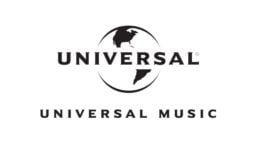In revenue terms, Universal Music Group is having a very decent 2015. So far, at least.
The killer stats: UMG’s recorded music revenue in the first nine months of 2015 hit €2.75bn ($2.95bn) – up 12.3% year-on-year in actual terms.
In like-for-like terms – aka an attempt to show manageable commercial growth – that number was up 1.9%. (Universal parent Vivendi uses ‘constant currency/perimeter’ to achieve this: a mixture of evening out year-on-year currency fluctuations as well as one-off asset sales/purchases.)
Across the entire UMG group – including merchandise, publishing and records – UMG’s nine-month revenues to September 30 stood at €3.49bn ($3.74bn) – up 12.8% in actual terms, and 2.1% year-on-year at constant currency and constant perimeter.
Sounds good, right?
You betcha: if Universal can continue its current Q1-Q3 trend (ie. up 12.8% on 2014 in real terms) across its various divisions through Q4 , its full-year total group revenues will comfortably exceed the mega-milestone of €5bn. The figure stood at €4.56bn last year.
In recorded music terms alone, if UMG can continue its Q1-Q3 growth trend (+12.3%) in Q4, its total 2015 revenues will top €4.1bn.
Unfortunately for Lucian Grainge, these are not foregone conclusions.
Especially because last year, Q4 was pretty special for Universal.
And for this year? Well, at this stage at least, it doesn’t look quite so special.
According to Vivendi’s Q3 investor release issued yesterday, the big albums for Universal this quarter are led by the likes of Ellie Goulding, Andre Rieu and Justin Bieber, as well as the Star Wars: Force Unleashed soundtrack.
There’s also two big-name repacks: Sam Smith’s In The Lonely Hour and The Beatles greatest hits set 1.
(You’re looking out for the bottom right in the below slide.)

How does this batch of releases stack up against 2014’s crop? It’s missing one superstar release, that’s for sure.
This time last year, Universal had just released Taylor Swift’s 1989, in late October.
It sold 1.28m copies in its first week of release in the US.
By the end of Q4 2014 it had sold 6m copies worldwide, according to IFPI stats, finishing the year as the globe’s second biggest-selling album. (UMG’s own stats suggest it sold 8.8m ‘album equivalents’ in the period.)
Meanwhile, 2014’s biggest-selling album was another Universal release: the soundtrack to Disney movie Frozen.
The OST sold 10m across 2014, with a huge Q4 spike in sales over the Christmas gifting period for obvious reasons. (The very same reasons why maddened fathers across the land knew the words to Let It Go backwards by the time they returned to work in January.)
The year’s fourth quarter has traditionally been a hugely important period for any major record label, but the years of digital download have somewhat reduced its power.
However, last year, Q4 still provided 33.7% of FY recorded music income at UMG, according to MBW analysis – an increase on the equivalent percentage in 2013.


When 2015 is wrapped up, it will be very intriguing to note whether, without another blockbuster album from Taylor Swift – and without the Christmas pull of the Frozen soundtrack – Q4’s contribution to Universal’s overall FY revenues pales in comparison to 2014.
As time ticks down to Christmas, Lucian Grainge will know that the absence of Shake It Off and Bad Blood singer Swift from his release schedule has left some big shoes to fill.
Adele will do the job at slipping into those shoes, of course.
Coldplay might have a bash too.
It’s just, from Grainge’s perspective, neither is exactly on the ideal record label.Music Business Worldwide





